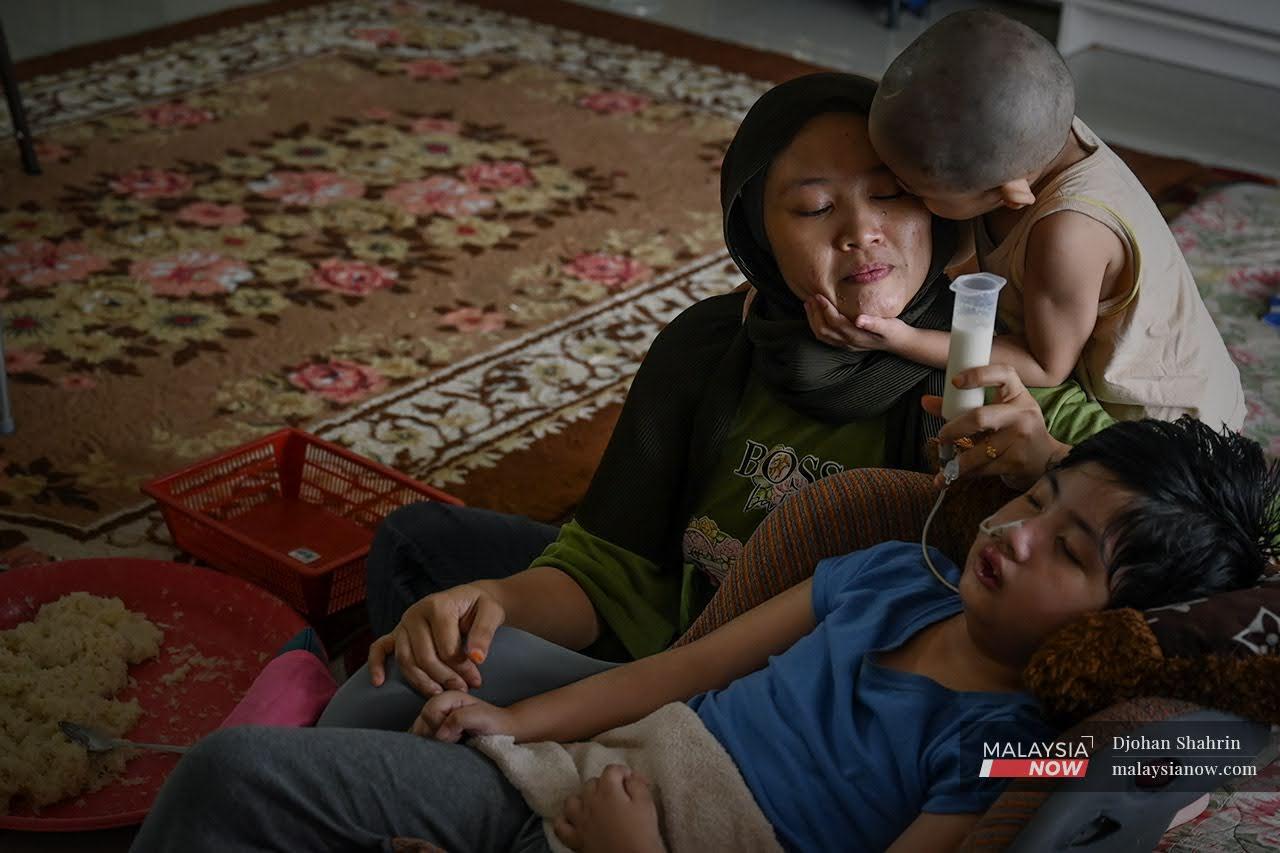Long haul for single mum as two children hit with degenerative disease
One is completely bedridden while the other must receive treatment every week.
Just In
For three years, Aliya Darwisyah was like any other little girl who loved running around and playing.
One day, though, everything changed.
She was sitting in the car with her mother, Zaitul Akma Muhd Zin, when it happened.
“She choked on something in her mouth and her face grew pale. We rushed her to hospital where the doctor said she had suffered a seizure.”
The problem was they did not know what had caused it.
“It broke my heart when the doctor told me.”
Aliya was referred back and forth between Hospital Kajang and Hospital Kuala Lumpur until a blood sample was eventually taken and sent to Germany for screening.
The results came back: Aliya was suffering from neuronal ceroid lipofuscinosis, a neurodegenerative disorder that affects the nervous system. Symptoms include a combination of dementia, epilepsy and loss of vision.
“It broke my heart when the doctor told me,” Zaitul said. “She had never shown any symptoms of the illness before.”
From that day onwards, though, the signs were clear. When she was four, Aliya began to fall down while walking. Her speech gradually declined, along with her ability to chew and eat her food.
By the time she was five, she was completely bedridden.
She now drinks milk through a tube that connects to her nose. Her medication is administered the same way. Her doctor had suggested that a tube be implanted in her stomach, but Zaitul was reluctant to do this.
“I am just too scared for her.”
She wants to find a proper job but taking care of Aliya and Adib is a full-time job on its own. The best she can do at the moment is to help her sister sell tapai and pulut panggang at a roadside stall in the area.
But this, too, is far from a sure thing. Sales were good during the first MCO as many had spent the Raya period in the city, which meant a lot of orders.
“However, sales have been on the decline,” she said.
Of late, things have been so bad that her sister has been forced to give up the house. This will be the last month that they stay there as they can no longer afford the rent.
“We are moving to a nearby apartment with a cheaper monthly rent,” Zaitul said.
Fitting the entire family there will be a challenge but they have no choice.
They receive some aid from a charity organisation, MyHeart Association, which has given them items such as diapers amd milk and helped covered some of the cost of hospital transportation and treatment.
Such assistance helps Zaitul soldier on, but even so, she knows that the road ahead will be long and winding.
Subscribe to our newsletter
To be updated with all the latest news and analyses daily.
Most Read
No articles found.
